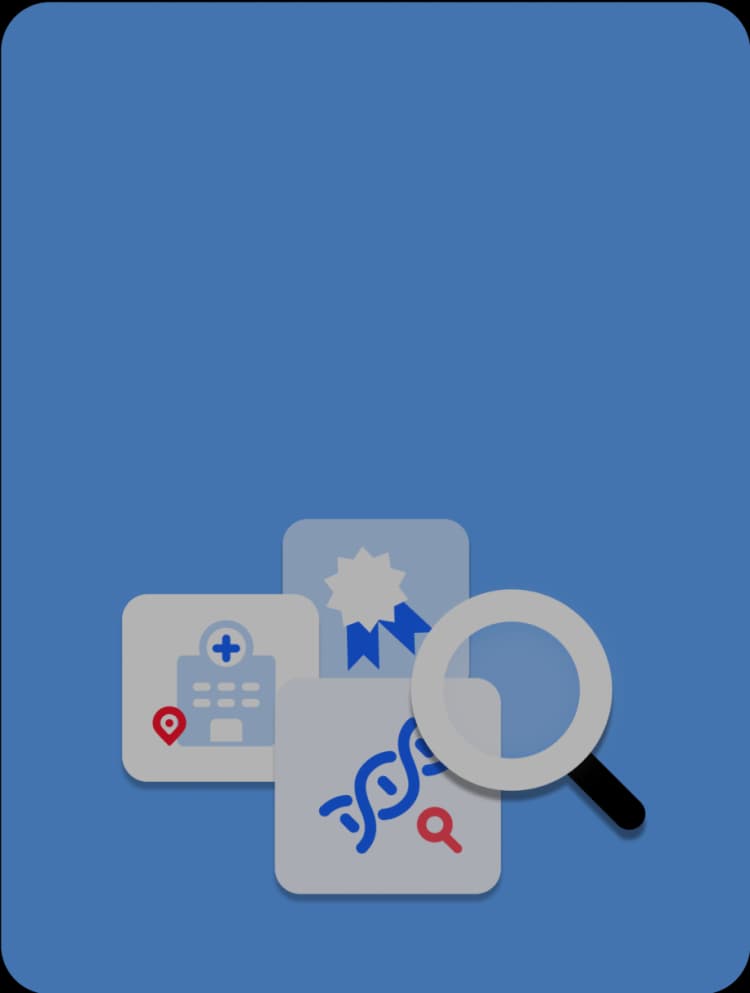3 Proven Actions You Should Take for Undiagnosed Patients After Exome Sequencing
What Should You Do If Your Patient Remains Undiagnosed After Exome Sequencing?
Diagnosing patients with rare or undiagnosed conditions poses significant challenges for medical professionals. Medical professionals are left with many questions when initial genetic tests like Exome Sequencing (ES) do not yield precise results. This guide outlines three essential actions medical staff should take for undiagnosed patients after ES.
1)Recommend Genome Sequencing (GS) Evaluation
Genome Sequencing (GS) offers a more comprehensive genome analysis than Exome Sequencing (ES). While ES targets the coding regions of genes, which represent approximately 1% of the entire genome, GS examines the complete genomic sequence.
When suggesting GS, medical staff should focus on detecting mutations or genomic regions not covered by ES. This involves examining areas of the genome where complex genetic alterations are likely to occur. The goal is to identify additional diagnoses that may have been overlooked in Whole Exome Sequencing.
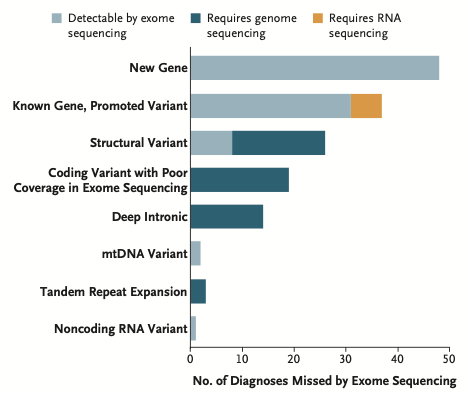
Research published in the New England Journal of Medicine (NEJM) indicates that – Of the 218 families, 61 had only identifiable variants through Whole Genome Sequencing. These included coding and intronic variants, minor structural changes, copy-neutral inversions, complex rearrangements, and tandem repeat expansions. A total of 21 (34%) were structural variants and out out of these variants, 19 (31%) were coding variants that had been missed in previous exome sequencing because of poor coverage of the region.
2) Propose Family Testing
Family testing involves analyzing the DNA of the patient’s relatives to provide a broader genetic context. This approach can reveal inheritance patterns and genetic variants that may not be apparent when only the patient’s DNA is examined. Family testing can be particularly valuable in diagnosing complex genetic conditions and understanding the genetic basis of the patient’s symptoms. Family testing has been shown to significantly alter diagnostic outcomes.
For instance, a recent project conducted by 3billion demonstrated that family testing resulted in 16 additional diagnoses among patients who were undiagnosed after the initial ES. Additionally, four patients’ conditions were more clearly determined to be negative (NEG) for genetic disorders. This highlights the potential of family testing to refine and improve diagnostic accuracy.
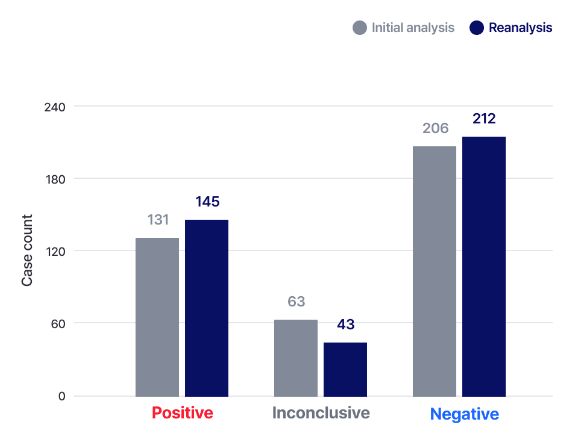
3) Use Reanalysis
Reanalyzing ES data can lead to new diagnoses as genetic research progresses and databases update their classifications. Even without GS, reanalysis can uncover new findings due to advancements in genetic research and technology. This isn’t just our assertion; it is also recommended by the American College of Medical Genetics (ACMG), which provides global guidelines for interpreting genetic variants. The American College of Medical Genetics and Genomics (ACMG) recommends that genetic data should be reanalyzed periodically to ensure the most accurate and up-to-date variant interpretation.
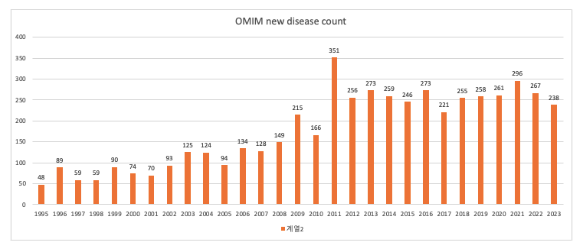
3Billion’s reanalysis system exemplifies the importance of continuous reanalysis. By leveraging updated databases and reanalysis algorithms, they have successfully provided new diagnostic results for patients who remained undiagnosed after initial testing.
Consider the case of a 2-year-old East Asian male who presented with hypotonia, hearing loss, and other developmental delays. His initial genetic assessment in February 2021 did not identify the underlying issue, yielding a negative result. However, this was merely the beginning of the diagnostic process. Subsequent reanalysis reclassified the case as inconclusive, prompting further investigation. By May 2021, after seven weeks of ongoing reanalysis incorporating new genomic data, the patient was accurately diagnosed with Radio-Tartaglia syndrome, a rare genetic disorder.
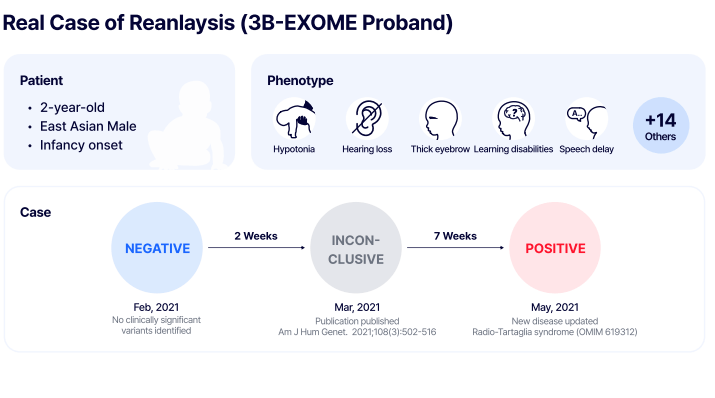
Implementing these actions can significantly improve the diagnostic process and provide better care for patients with rare and undiagnosed conditions. This comprehensive approach not only enhances diagnostic accuracy but also ensures that patients receive timely and appropriate medical interventions based on the most current genetic information available.
Enhance Your ES Journey with 3billion

Want to improve diagnostic outcomes after ES?
Request our ES brochure to explore Genome Sequencing, family testing, and reanalysis workflows.
Get exclusive rare disease updates
from 3billion.

Sree Ramya Gunukula
Marketing Leader with experience in the pharma and healthcare sectors, specializing in digital health, genetic testing, and rare disease diagnostics.



